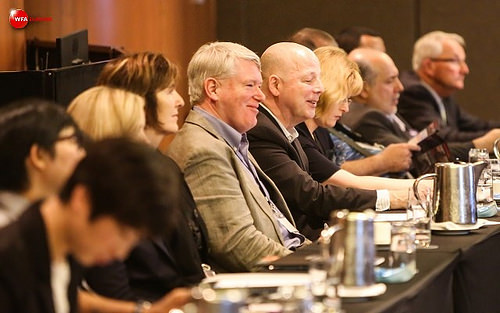EU Health Commissioner Praises EU Pledge
01/07/2014
Back to the overview
On the 10th June, at a meeting of the EU High Level Group (HLG) on Nutrition and Physical activity, European Commissioner for Health Tonio Borg highlighted the EU Pledge as best practice. Tonio Borg stated that: “[%u2026] as regards the Platform for Action, it has honoured its name with 300 commitments for concrete action. We have had excellent initiatives amongst these 300, such as the EU Pledge, whereby leading food and beverage companies have committed themselves not to advertise to children”. He also recognised the important role of the industry, while calling for more and stronger commitments. (Full speech)
The HLG meeting was preceded by the EU Platform meeting, during which monitoring agency IBF International Consulting presented its annual report. Of the 134 current EU Platform commitments, 15 are marketing-related and around 30 are focused on children and adolescents. IBF advised that stakeholders should submit more commitments aimed at increasing physical activity, that at least 20 new commitments should be submitted every year and that new commitments should target vulnerable groups.
Food and drink sponsorship in schools was specifically raised as a source of great concern by NGOs during the meeting. This was echoed by the Commissioner Borg who lamented that the cheapest food is often the unhealthy option.
Finally, the European Commission presented its collaboration with the WHO in order to prevent duplication of efforts. The Commission and the WHO already work together on the European Database on Nutrition and the charting of childhood obesity, they will continue to do so on the monitoring of the Childhood Obesity Action Plan. The WHO representative who attended the HLG meeting presented a set of indicators, which range from data on height and weight to the number of Member States promoting breastfeeding. Specific indicators also relate to the marketing of “HFSS” products to children and their prevalence in the school environment.
Sign up to monthly WFA news
The HLG meeting was preceded by the EU Platform meeting, during which monitoring agency IBF International Consulting presented its annual report. Of the 134 current EU Platform commitments, 15 are marketing-related and around 30 are focused on children and adolescents. IBF advised that stakeholders should submit more commitments aimed at increasing physical activity, that at least 20 new commitments should be submitted every year and that new commitments should target vulnerable groups.
Food and drink sponsorship in schools was specifically raised as a source of great concern by NGOs during the meeting. This was echoed by the Commissioner Borg who lamented that the cheapest food is often the unhealthy option.
Finally, the European Commission presented its collaboration with the WHO in order to prevent duplication of efforts. The Commission and the WHO already work together on the European Database on Nutrition and the charting of childhood obesity, they will continue to do so on the monitoring of the Childhood Obesity Action Plan. The WHO representative who attended the HLG meeting presented a set of indicators, which range from data on height and weight to the number of Member States promoting breastfeeding. Specific indicators also relate to the marketing of “HFSS” products to children and their prevalence in the school environment.
Sign up to monthly WFA news













































































